With tender humility and grit of purpose, Spectrum Health nurses put their personal fears aside to support colleagues, watch over their families and care for their community.
They don’t consider themselves heroes.
Nurses take care of others. It’s what they’re called to do.
They rely on faith and take every precaution to protect themselves so they don’t take the virus home to the families they love.
These are the experiences of four nurses working in rural hospitals during this pandemic.
Faith through fear
Jan Moriarty, a nurse of 37 years, said the most challenging part of her job in the Big Rapids Hospital Emergency Department has been resisting fear.
She’s careful to appropriately use personal protective equipment and leans on her faith.
“I have a strong faith in God, so I rest on that,” Moriarty said. “This is what I do. I know there are risks involved with the job. This is something that I chose to do, and I love it. This has not changed that.”
Outpatient surgery nurse Denise Jacobsen starts each shift at United Hospital in Greenville praying with colleagues in the hospital chapel.
“We meet in the chapel every morning and we do a little prayer before we go into our department, which has been comforting for us,” Jacobsen said. “That’s how we’ve been coping with it, just prayer and supporting one another. We’ve always supported each other, but especially more so during this epidemic.”
Jacobsen worries about the possibility of the virus hitchhiking a ride on her clothes when she goes home, especially since her mother’s health is failing. She initially wore a mask at home, but has since removed the mask so her mother, who receives hospice care, could better communicate.
“At least she can see my face, because my mom can’t hear and reads lips,” Jacobsen said. “That was challenging.”
Fellow United Hospital nurse Nichole Johnson has two children at home and experienced similar anxiety. She eased herself off the 24/7 news cycle, and educated herself with evidence-based articles and papers.
“It has eased my anxiety and my fears as I’m finding out facts,” she said. “As long as I’m practicing best practices and doing what I’m supposed to do, I would like to think I’m doing my part to not spread this and to not bring it home.”
Reed City Hospital Emergency Department nurse Amber Besko said the greatest challenge for nurses is the fear of the unknown—particularly, how to keep their families safe and what will happen if patient volumes increase?
“In the beginning it was a struggle, for sure, just worrying about it every day, thinking ‘Am I going to bring it home … or am I going to get sick?’” she said.
Family connections
Support among family members—for the nurses and their patients—has been key.
Besko, who has a big extended family, has tried to keep them all connected virtually.
“We’ve been doing a good job of keeping everyone’s anxiety low,” she said. “I reassure them that it’s OK, that we’re going to be OK and we just have to make sure everyone stays safe.”
Jacobsen said adhering to social distancing within her family has been challenging.
“Not seeing my grandchildren at all has been very trying,” Jacobsen said. “We’re doing story time over FaceTime. You just try to come up with different ideas on how to spend time with them, but it’s not the same as having them sit in your lap and reading them a story while you’re holding them.”
The nurses acknowledge their patients face the same struggles. Not being able to be with their families due to state-ordered visitor restrictions has been difficult and sometimes heart wrenching.
“Especially if someone is getting bad news,” Jacobsen said. “You’re trying to call and update the family on the phone. They’re upset because they can’t be there and you’re trying to console them. That has been the hardest thing, because you just feel so bad.”
Moriarty said the nursing staff is proactive in connecting with patients’ families.
“I think that’s very important, because I totally understand people are frustrated and scared,” Moriarty said. “Most of the people have been really, really good about it. They realize we’re … doing it to protect everybody.”
Besko said they advocate harder for patients in these situations, considering them extended members of their own families.
“We sit with them in their rooms when they’re anxious,” Besko said. “It’s just taking that little bit of extra time.”
Wearing protective masks has added an extra barrier to communication, but the nurses hope their patients can hear the smile in their voice and see the caring in their eyes.
“A lot of nursing is body language,” Besko said. “It’s talking and crying with patients … or laughing with them just to get them to feel a little better.”
Community support
Community support keeps spirits high among nurses and health care workers on the front lines of this COVID-19 fight.
Signs of appreciation and encouragement outside hospitals greet team members on their way to and from work. And businesses and individuals who’ve dropped off supplies and treats nourish their souls.
“It’s been awesome,” Moriarty said. “It’s really humbling.”
“That’s kind of a tearjerker,” Jacobsen said, choking back emotion. “It definitely warms my heart to think we’re having outside support from complete strangers. It’s just been amazing.”
“We love having that support and it makes us feel like we’re doing good in our community,” Johnson said. “The generosity has really been amazing. It’s greatly appreciated.”
“It’s been a blessing every time someone is so generous and wants to bring in something for us,” Besko said.
The support comes from colleagues, too.
Besko said a couple of nurses have made peers surgical caps on their off days. Lab department personnel brought in flowers for the emergency department team and said, “We thought you guys needed something to smile about today.” And the Reed City environmental services team members made crocheted headpieces with two buttons, so you can connect your mask and save your ears.
“Everybody is trying to help everybody,” Besko said.
“We call each other our work family,” Johnson said. “We have a tight bond. We can put each other at ease during these tough times.”
Nursing heroes
Despite increased attention from the community, none of the nurses considers themselves to be a hero.
“This is what I do every day,” Johnson said. “We don’t have a pandemic every day, but we still do patient care every day. This is just what we do.”
“I’m just doing my job,” Moriarty said. “There’s a lot of bigger heroes than I am, but I love my job and do it to the best of my ability.”
“I see myself caring for patients like I normally do,” Jacobsen said. “It’s just a different way to care for them now, but I never really thought of myself as a hero.”
“I chose this position, and obviously we didn’t know this was going to happen,” Besko said. “It’s something I signed up for. It’s something I’m passionate about it.”
The nurses said the COVID-19 challenge we’re all facing has brought the community together and made them each appreciate things we may have taken for granted before.
“It shows you how precious our lives really are,” Jacobsen said. “To hear stories about families losing multiple family members to COVID, that one day we’re here and the next day we’re not.”
“I think it’s made me a little stronger, realizing I can do this,” Moriarty said. “It was a little daunting at first, having to put on the PPE equipment that we’re not used to having to wear. Just knowing that I can do this, it’s not that big of a deal.”
“It’s made me slow down and realize it’s the little things in life,” Besko said. “You don’t always get to be home with your loved ones as much as we are right now. You really get to take that time to appreciate everything you have.”
Patients are showing more appreciation, too, Besko said, sharing a story about a gentleman who recently sought care at the emergency department.
“As he left he was clapping for us and said, ‘I just want you guys to know how much we appreciate it,’ and he was clapping all the way out the door, even though he was the one who was sick.”
It also helps to keep in mind that life will go on in time.
“Things are going to change and it’s all going to be OK in the end,” Besko said. “Eventually things will calm down once we have it figured out and we’ll get back to normal life and get back to hugging our loved ones and seeing them.”
“It’s just a matter of time and a matter of keeping everyone safe.”
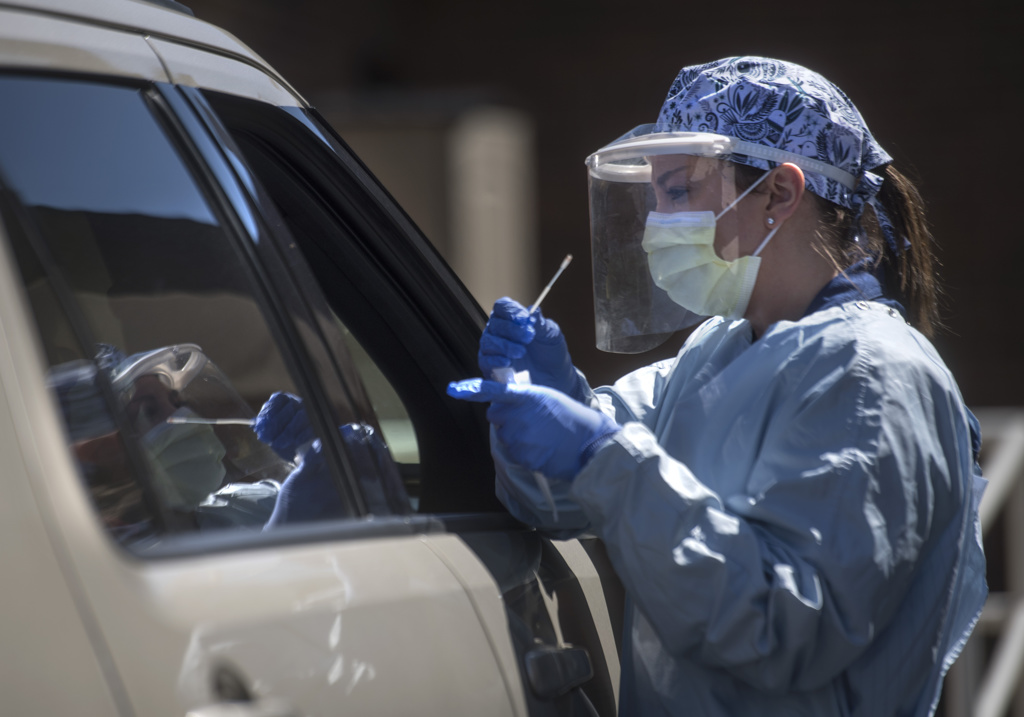
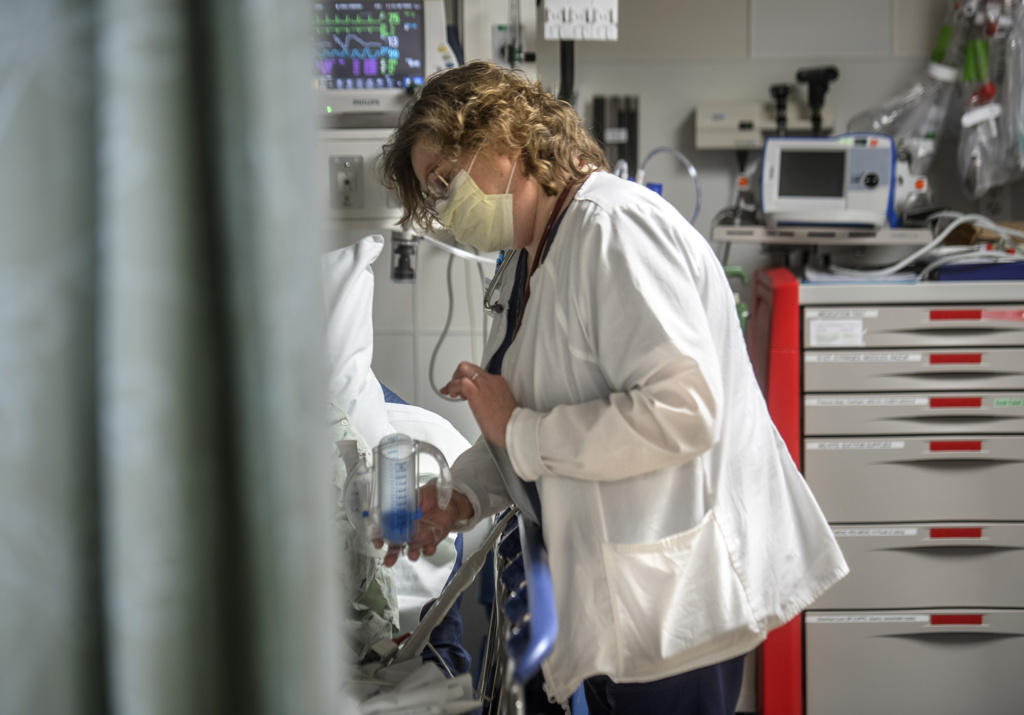


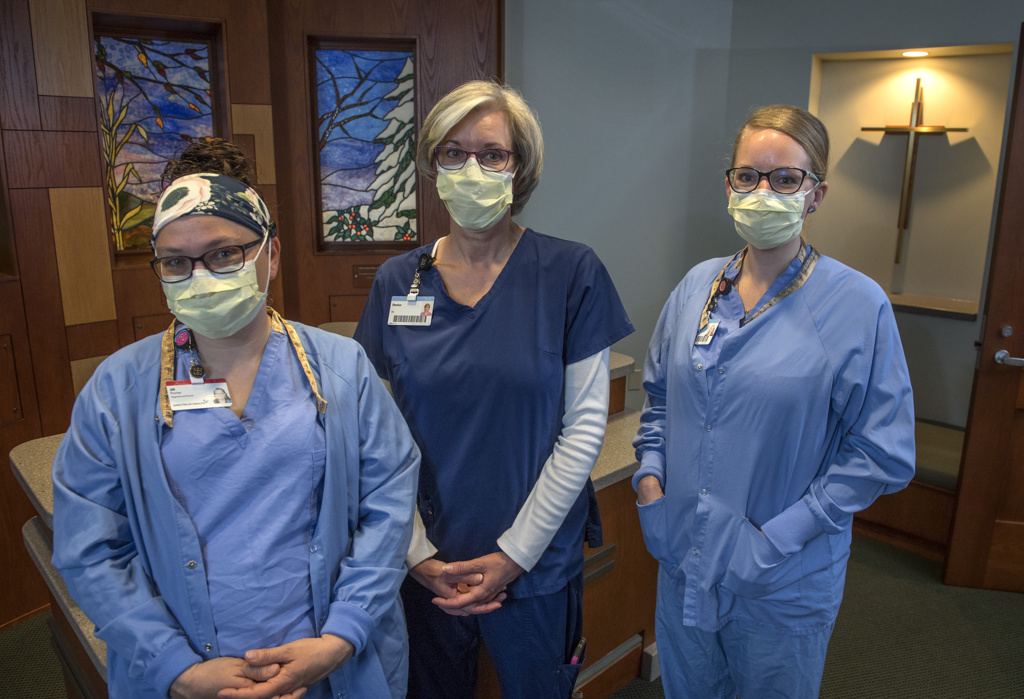
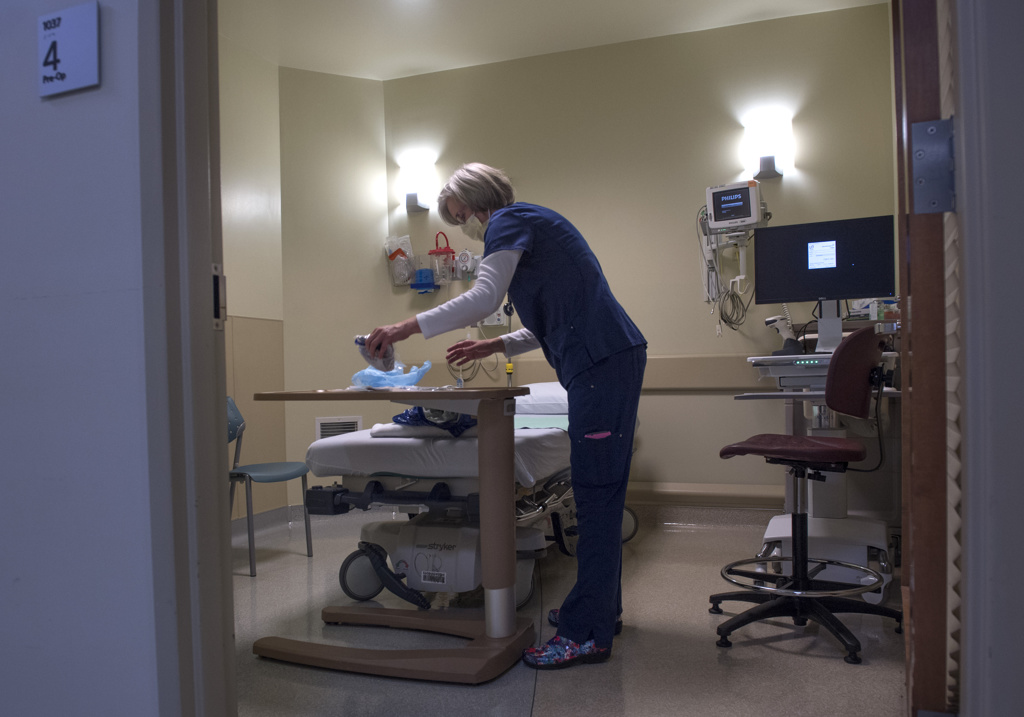
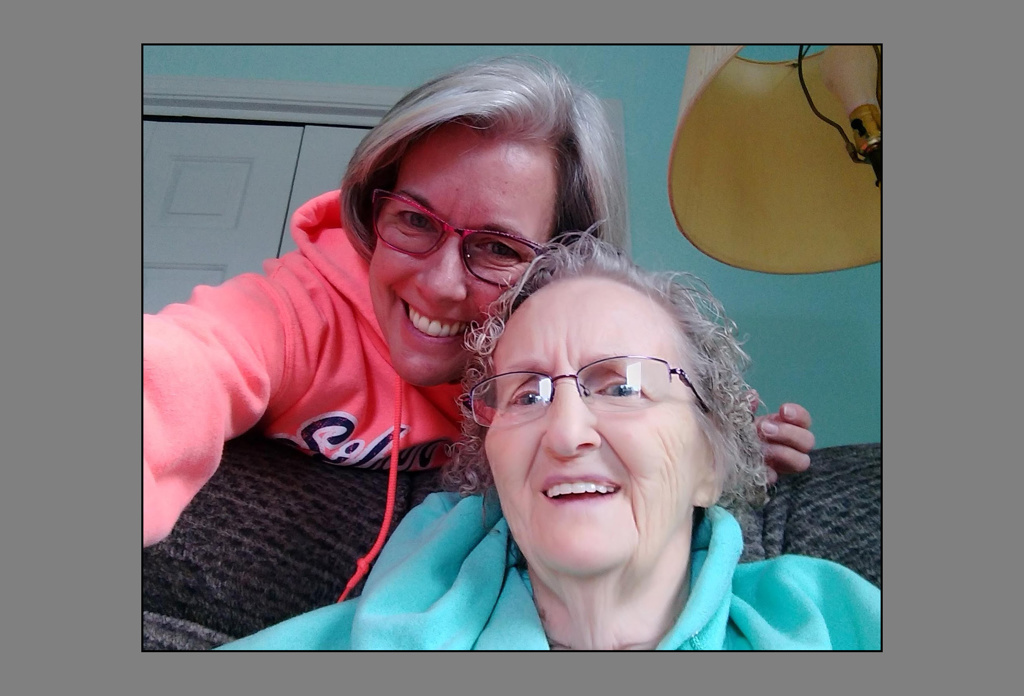

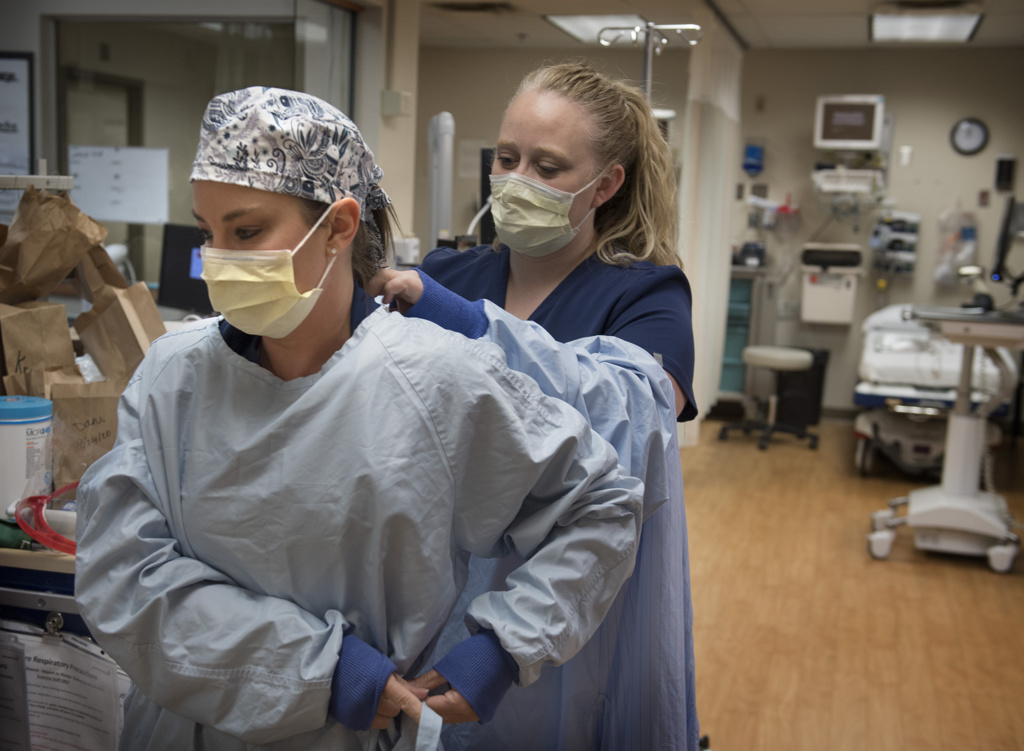

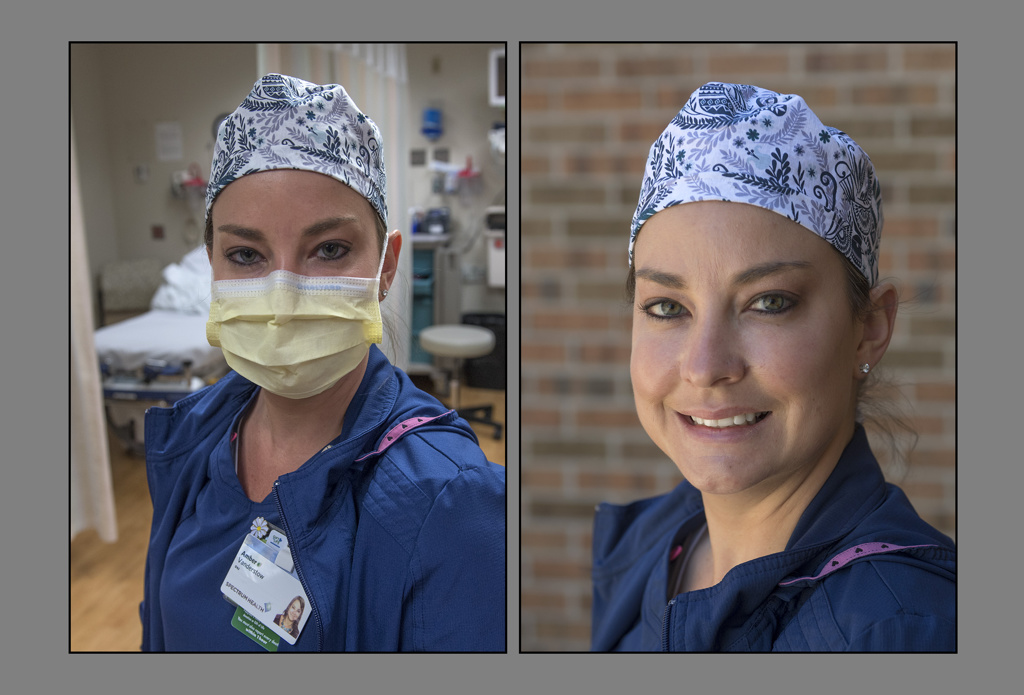
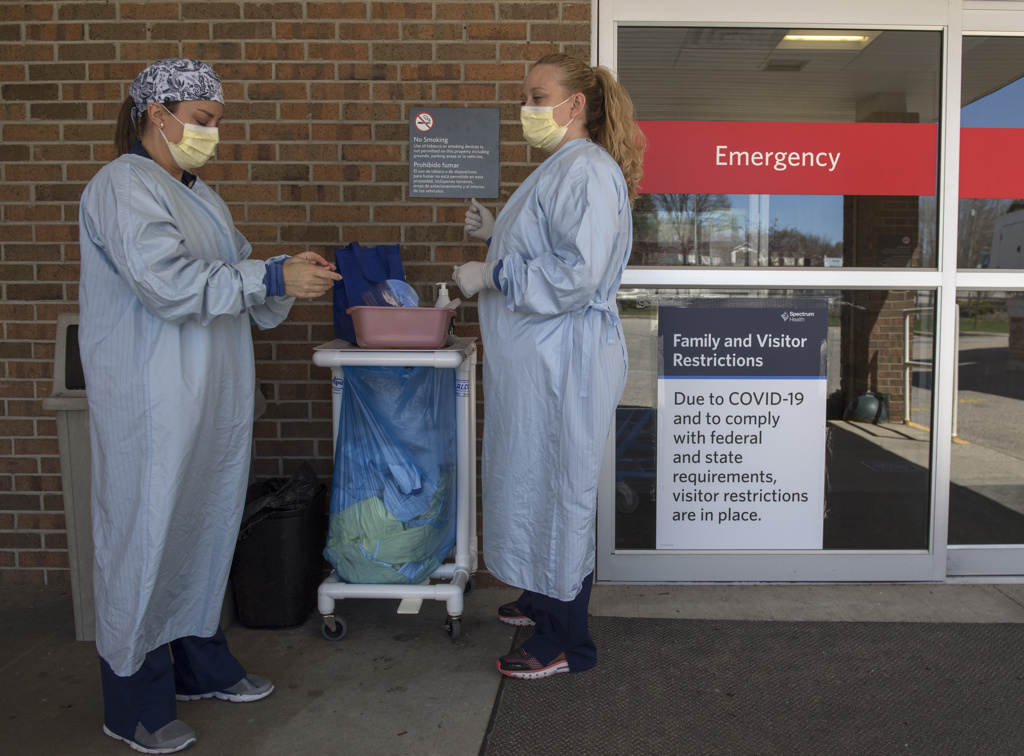
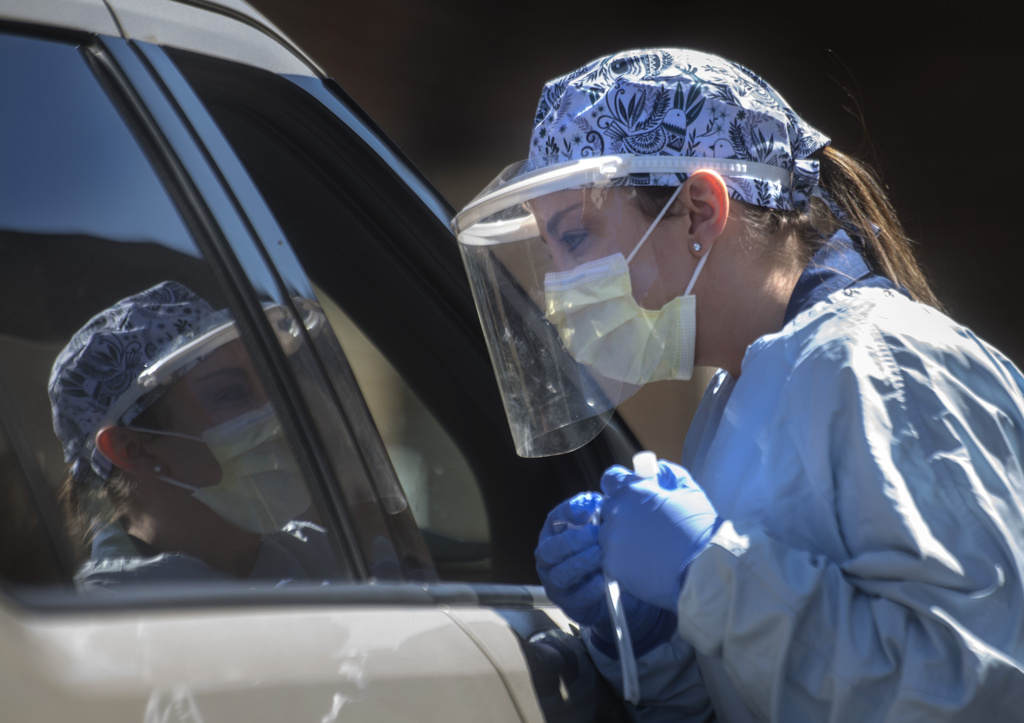
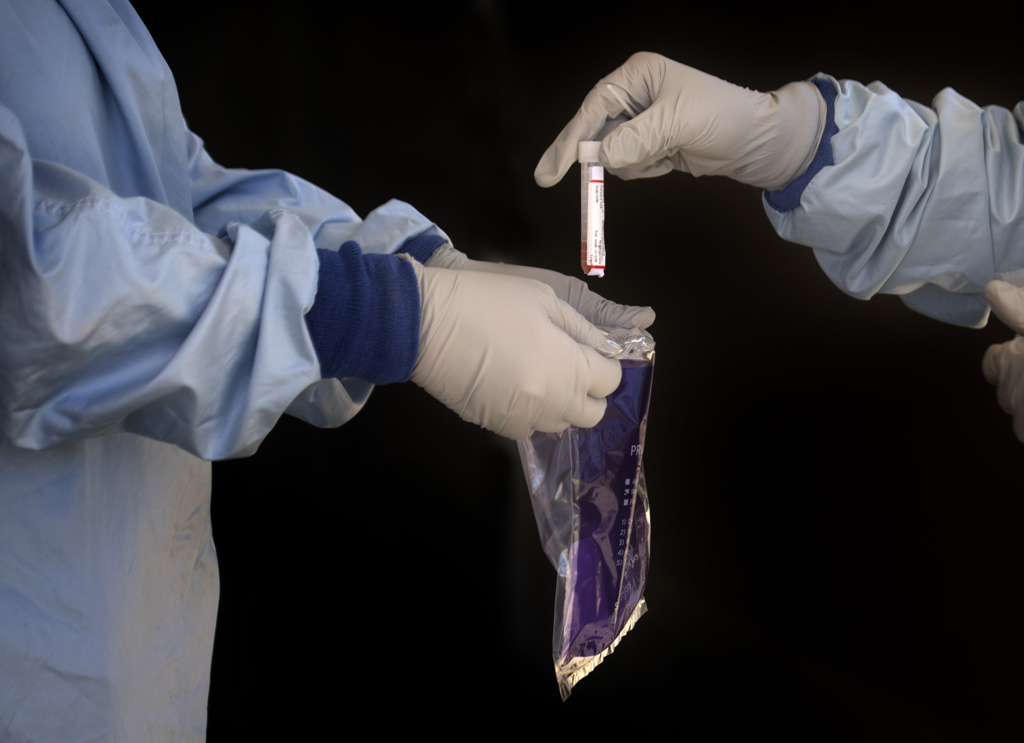
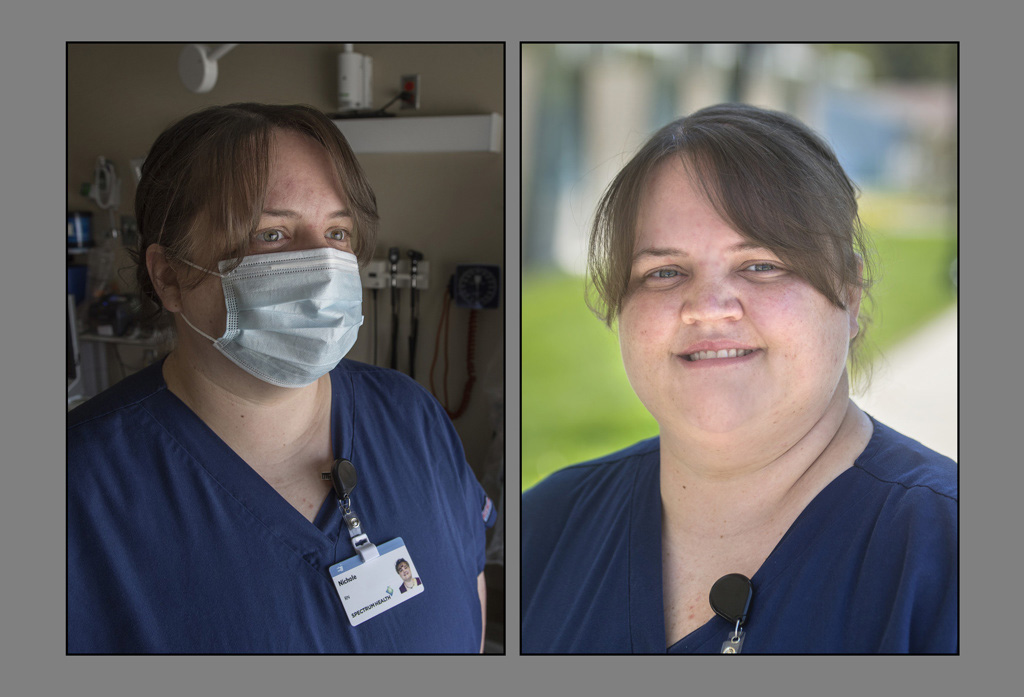
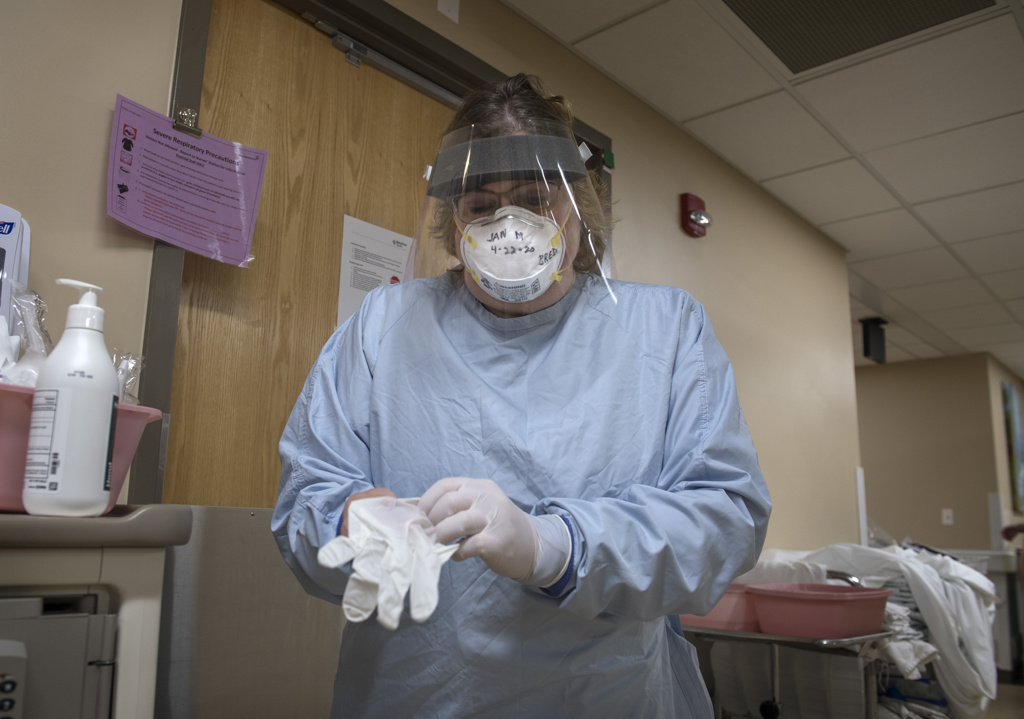
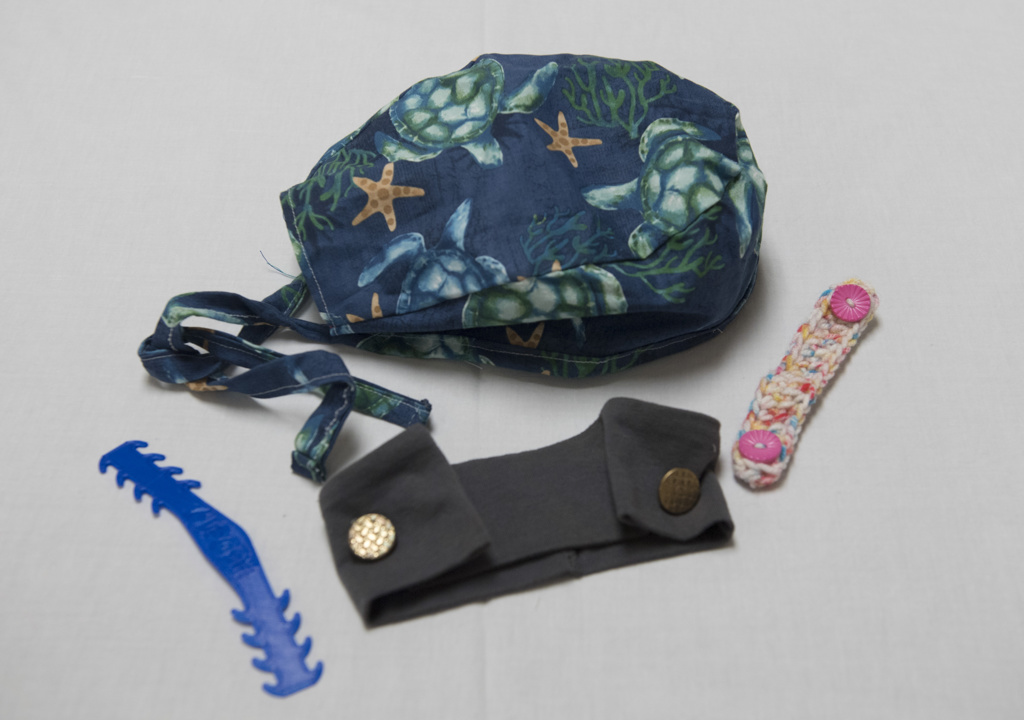
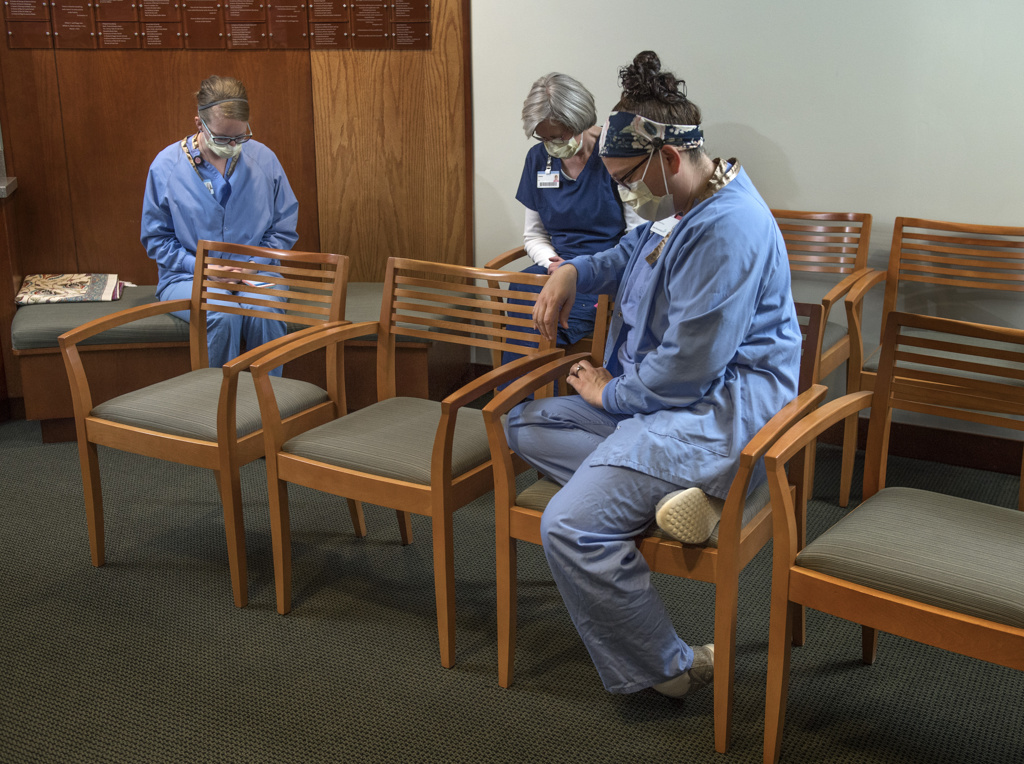
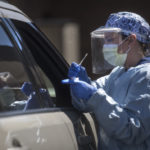
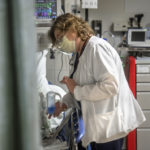
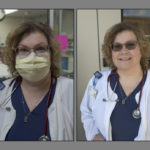
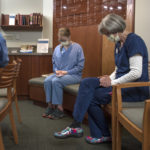
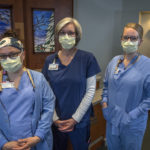
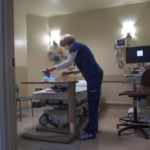
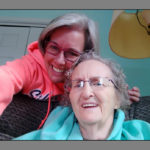












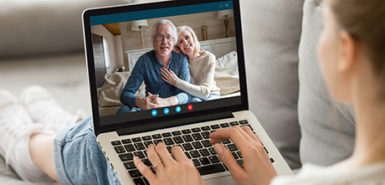 /a>
/a>
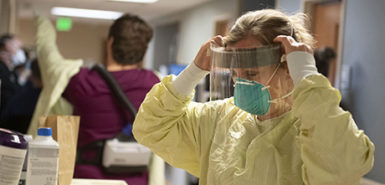 /a>
/a>
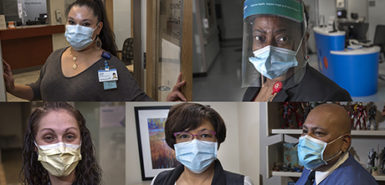 /a>
/a>